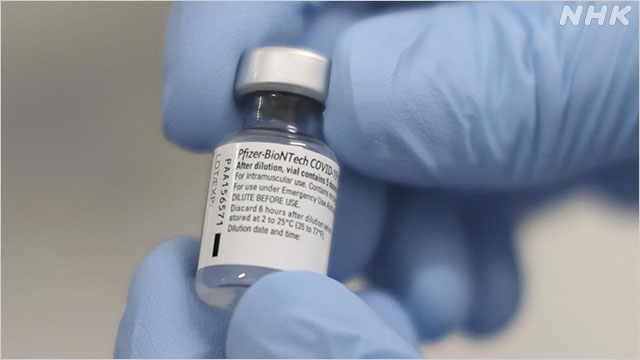The Ministry of Health, Labor and Welfare publishes the latest information on the new coronavirus vaccine being developed in Japan and overseas on its website.
Vaccinations for the new coronavirus have already begun in the United States and the United Kingdom, and in Japan, efficacy and safety are being examined so that medical professionals can start vaccinations in sequence by the end of February.
Under these circumstances, the Ministry of Health, Labor and Welfare has compiled the latest information on vaccines and published it on its website.
Effectiveness
A paper has been published that confirmed that the vaccine planned to be supplied to Japan produces antibodies against the virus after administration and that the reaction of lymphocytes involved in immunity is activated.
Of these, the vaccines developed by Pfizer, Moderna, and AstraZeneca have been published as interim results of clinical trials that the number of people who received the vaccine was lower than that of those who did not, but for details on efficacy etc. He says he needs to wait for more information to be revealed.
Side reaction
Vaccination is generally said to be extremely rare, but the health hazards of side reactions are unavoidable.
Currently, it has been announced in papers that the vaccines planned to be supplied to Japan showed symptoms such as pain, headache, malaise, and myalgia at the inoculated site, including those that have no causal relationship. I will.
In addition, it has been reported that people who have been vaccinated or given medicines generally have an allergic reaction called "anaphylaxis".
It is a reaction in which skin symptoms such as hives, gastrointestinal symptoms such as abdominal pain and vomiting, and respiratory symptoms such as breathlessness appear rapidly.
Influenza vaccines also report about 20 cases of anaphylaxis each season.
If you have symptoms such as breathlessness, treatment such as medication is given to relieve the symptoms, but medicines are basically available at all medical institutions.
Anaphylaxis is more likely to occur in people with food allergies, asthma, allergic rhinitis, atopic dermatitis, etc., and careful observation is required when inoculating, so inoculate after consulting with your doctor. I want you to decide whether to receive it.
In addition, some people may experience dizziness or fainting due to injection pain or tension, regardless of the components of the vaccine.
It is a symptom caused by a decrease in blood pressure and the amount of blood sent to the brain, and most of the symptoms occur within 30 minutes after inoculation.
Normally, it means that you will recover naturally by lying down and resting.

